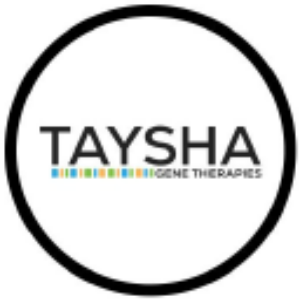Taysha Gene Therapies Announces Collaborations to Advance Next-Generation Mini-Gene Payloads for AAV Gene Therapies for the Treatment of Genetic Epilepsies and Additional CNS Disorders
Taysha Gene Therapies, Inc. (Nasdaq: TSHA), a patient-centric, clinical-stage gene therapy company focused on developing and commercializing AAV-based gene therapies for the treatment of monogenic diseases of the central nervous system (CNS) in both rare and large patient populations, today announced multi-year collaborations with Cleveland Clinic and UT Southwestern Gene Therapy Program (UTSW) to advance next-generation mini-gene payloads for AAV gene therapies for the treatment of genetic epilepsies and additional CNS disorders. Taysha will have an exclusive option on new payloads, constructs and intellectual property associated with, and arising from, the research conducted under this agreement.
A team of researchers from Cleveland Clinic Lerner Research Institute will create mini-gene payloads designed to address some of the long-standing limitations in AAV gene therapy. UTSW will create and evaluate vector constructs in in vivo and in vitro efficacy models of genetic epilepsies and additional CNS disorders.
“By pushing the boundaries of AAV vector engineering, we may be able to overcome some of the challenges inherent with gene therapy and potentially expand the range of treatable genetic CNS diseases with gene therapies. We appreciate the support from Taysha and UTSW in this work,” said Dennis Lal, Ph.D., Assistant Staff at Cleveland Clinic Genomic Medicine Institute and Neurological Institute. “We believe that our proprietary approach to overcoming current limitations of packaging capacity and our access to data on thousands of protein structures associated with a whole host of monogenic CNS disorders has the potential to enable a deep pipeline of functioning mini-genes.”
“Cleveland Clinic and UTSW are two of the world’s preeminent leaders in gene therapy innovation, and this collaboration is designed to leverage our capabilities and synergies with these institutions to pioneer novel approaches to address vector capacity, which is a common limitation when treating genetic disorders associated with large proteins,” said Suyash Prasad, MBBS, M.SC., MRCP, MRCPCH, FFPM, Chief Medical Officer and Head of Research and Development of Taysha. “We look forward to a productive collaboration with the goal of developing treatments with promising benefits to patients with debilitating genetic epilepsies.”
About Taysha Gene Therapies
Taysha Gene Therapies (Nasdaq: TSHA) is on a mission to eradicate monogenic CNS disease. With a singular focus on developing curative medicines, we aim to rapidly translate our treatments from bench to bedside. We have combined our team’s proven experience in gene therapy drug development and commercialization with the world-class UT Southwestern Gene Therapy Program to build an extensive, AAV gene therapy pipeline focused on both rare and large-market indications. Together, we leverage our fully integrated platform—an engine for potential new cures—with a goal of dramatically improving patients’ lives. More information is available at www.tayshagtx.com.
Forward-Looking Statements
This press release contains forward-looking statements within the meaning of the Private Securities Litigation Reform Act of 1995. Words such as “anticipates,” “believes,” “expects,” “intends,” “projects,” and “future” or similar expressions are intended to identify forward-looking statements. Forward-looking statements include statements concerning or implying the potential of our collaboration with the Cleveland Clinic and UTSW, the potential of our product candidates to positively impact quality of life and alter the course of disease in the patients we seek to treat, our research, development and regulatory plans for our product candidates, the potential benefits of rare pediatric disease designation and orphan drug designation to our product candidates, the potential for these product candidates to receive regulatory approval from the FDA or equivalent foreign regulatory agencies, and whether, if approved, these product candidates will be successfully distributed and marketed. Forward-looking statements are based on management’s current expectations and are subject to various risks and uncertainties that could cause actual results to differ materially and adversely from those expressed or implied by such forward-looking statements. Accordingly, these forward-looking statements do not constitute guarantees of future performance, and you are cautioned not to place undue reliance on these forward-looking statements. Risks regarding our business are described in detail in our Securities and Exchange Commission (“SEC”) filings, including in our Quarterly Report on Form 10-Q for the quarter ended September 30, 2020, which is available on the SEC’s website at www.sec.gov. Additional information will be made available in other filings that we make from time to time with the SEC. Such risks may be amplified by the impacts of the COVID-19 pandemic. These forward-looking statements speak only as of the date hereof, and we disclaim any obligation to update these statements except as may be required by law.
View source version on businesswire.com: https://www.businesswire.com/news/home/20210209005437/en/







